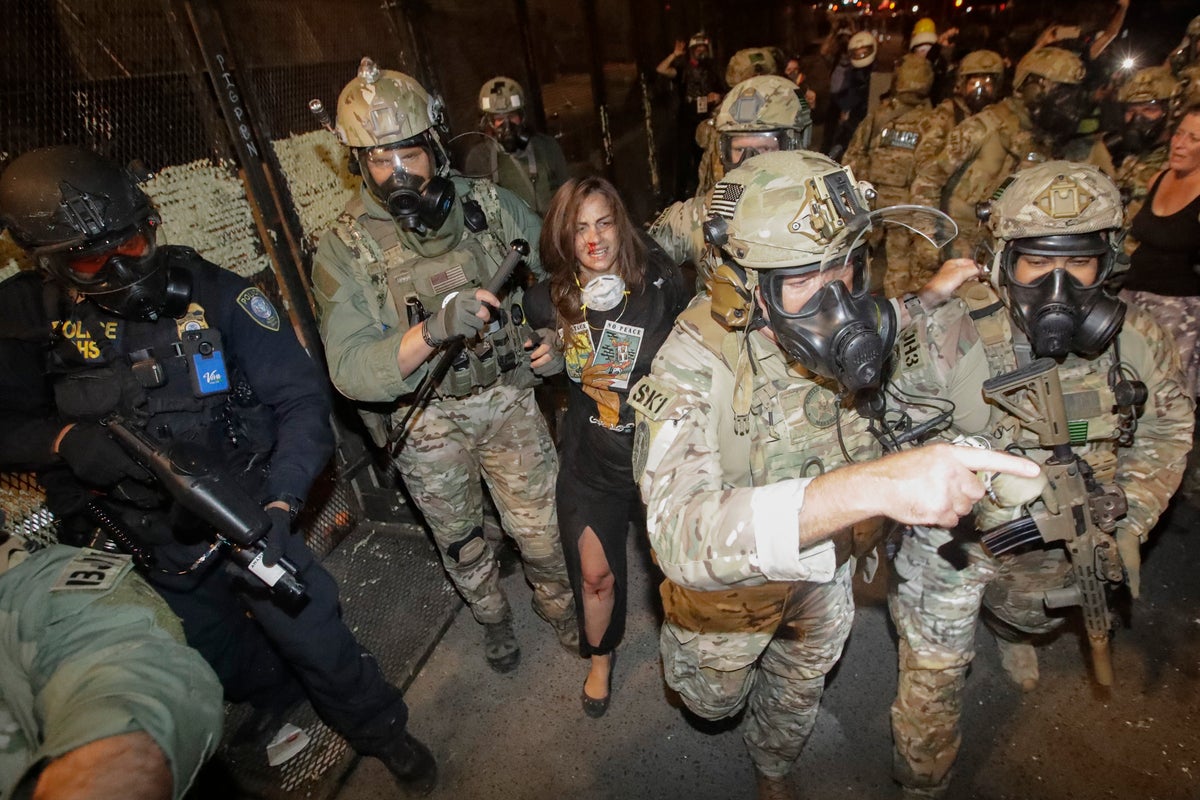
U.S. Department of Homeland Security officials under then-President Donald Trump compiled intelligence dossiers on people who were arrested at Black Lives Matter protests in Portland, Oregon, according to a newly unredacted internal review.
The 76-page report is an internal review by DHS of actions carried out by its Office of Intelligence and Analysis in June and July 2020, when militarized federal agents were deployed to Portland against people protesting police abuses in the wake of the murder of George Floyd, a Black man who was killed by a Minneapolis police officer.
When the dossiers were being compiled, some DHS analysts voiced concerns over the legality of collecting intelligence “on protestors arrested for trivial criminal infractions having little to no connection to domestic terrorism,” the DHS report said. Some of the employees even refused to participate.
Surveillance of Portland protesters in 2020 “included lists of friends, family and social media associates for people who posed no threat to homeland security,” the office of U.S. Sen. Ron Wyden, D-Oregon, who obtained the report, told reporters.
“Political DHS officials spied on Oregonians for exercising their First Amendment right to protest and justified it with baseless conspiracy theories,” Wyden said.
Brian Murphy, who was then the acting undersecretary of DHS' intelligence unit, insisted on calling violent protesters “Violent Antifa Anarchists Inspired," even though “overwhelming intelligence regarding the motivations or affiliations of the violent protesters did not exist,” according to the report.
Top DHS leaders even wanted the department's Office of Intelligence and Analysis to create dossiers on everyone participating in the Portland protests, but Murphy advised that the unit could only look at people who were arrested.
The dossiers are known as baseball cards or more formally as Operational Background Reports. They were previously normally compiled on non-U.S. citizens or only on Americans with “a demonstrated terrorism nexus.”
The DHS report was previously released last year but had more redactions. The less-redacted version, which Wyden's office provided to journalists on Thursday, also shows the baseball cards — which were usually one-page summaries — included any past criminal history, travel history, “derogatory information from DHS or Intelligence Community holdings,” and publicly available social media. Draft dossiers included friends and family of protesters as well.
Wyden credited current Undersecretary for Intelligence and Analysis Kenneth Wainstein for reviewing the Trump administration’s “unnecessary redactions” and releasing the unredacted report.







